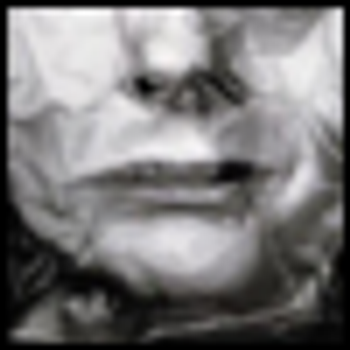
In a recent Psychiatric Times blog, Allen Frances engaged a debate with Andrew Hinderliter over the question of change in the diagnostic categories of DSM-5.


In a recent Psychiatric Times blog, Allen Frances engaged a debate with Andrew Hinderliter over the question of change in the diagnostic categories of DSM-5.

On January 24, Dr Ronald Pies posted a thoughtful piece titled “Who Can Forgive Jared Loughner?” which advocates the importance of relinquishing hatred in cases like the ones in Tucson and transforming “our revulsion and rage into something higher and nobler.”

Major mood disorders have been associated with increased suicidal behavior. This is especially true in patients with a mixed, manic-depressive, or dysphoric-agitated state.

Expansion of age-appropriate developmental psycho-therapeutic services must become a top public health priority to make these treatments more widely available to young children and to capture the potential greater benefit of the earliest possible intervention for mental disorders.

Pushing the edge of our understanding into the murky world of association cortex only means that future experiments will be trickier to interpret.

Is violent behavior a proxy indicator for the relationship between severity of substance abuse and suicide risk? What has the strongest influence in promoting doubt about a delusion in a patient with schizophrenia? These questions and more.

I would like to start off this blog with two stories that happened many years ago.

What goes on in the minds of those who attempt suicide? Here: a psychologist who explores the myths that surround suicide notes "We need to get it in our heads that suicide is not easy, painless, cowardly, selfish, vengeful, self-masterful, nor rash."

Erroneous conclusions, and medical harm, can come from accepting any hypothesis uncritically, and growing evidence indicates that treatments based on disorder hypotheses for depression do cause harm.

Recently, the Substance Use Disorder Work group of the DSM-5 announced the inclusion of “craving” in the diagnostic criteria for all substance use disorders despite its lack of empirical support from the very analyses conducted by that Workgroup. In addition, no detailed literature review supports the decision to make “craving” a core symptom of Substance Use Disorder syndromes.

Recently, NARSAD presented its achievement awards for 2010-awards given to physicians and scientists doing cutting-edge work to better understand the mechanisms and causes of mental illness.

Forensic psychiatrists expressed near-unanimous opposition to 3 controversial new sexual diagnoses after a spirited debate at a recent conference of the American Association of Psychiatry and Law (AAPL).

Sometimes, when I recommend an antidepressant, patients will ask if it will make them happy. No, I usually eventually answer. I try to gently and empathically point out that what we have are called antidepressants. They are not called happy pills for a good reason.

Many people associated with DSM-5 have privately expressed their serious doubts to me, but felt muzzled into public silence by constraining confidentiality agreements and loyalty to the process.

The team approach to dementia psychiatry services requires leadership for direction, decision making, and policy changes in order to make the process efficient and beneficial for all involved.

Psychiatrists helping nonpsychiatrists refer their patients has a long but not always illustrious history.

It is not surprising that one of the most complicated aspects of collaboration with faculty and staff in the ED setting is the professional or social contract.

Contrary to the popular belief that quitting increases anxiety, a recent study reports that stopping smoking can lift depression, decrease anxiety, and give quitters a sense of accomplishment during the period of abstinence.

A funny thing happened to me on the way back from the New Hampshire Governor’s Statewide Conference on Domestic & Sexual Violence. I don’t mean funny in a comedic sense, but rather in an unexpected, shocking sense.

Final guidance from the federal government is imminent about how much of a patient’s protected health information (PHI)-including psychotherapy notes-a psychiatrist must provide to a health insurer.

Patients’ stories (both content and structure) contain more therapeutically useful information than merely identifying and counting symptoms.

The neuroanatomical linkage that emerges from a normal part of business experience-the reaction to success and also to failure (especially if that failure happens to someone else)-is the focus of this column.

DEBATE In 2005, the Board of Trustees of the American Psychiatric Association (APA) prepared a Position Statement entitled Psychiatric Participation in Interrogation of Detainees

As I lie in my hospital bed, attempting to breathe through my trach tube at a normal rate, waiting for my morning medication, and hoping to hear good, or at least manageable, results from my doctors when they come to me on rounds, my mind wanders. Despite the precariousness of my situation, I can’t help but smile as I think of my now monthly psychotherapy sessions.

Dr Allen Frances pleads for the United States Supreme Court to “step up to the plate” and halt the “disturbing misuse” of the “makeshift” psychiatric diagnosis of Paraphilia NOS (nonconsent).